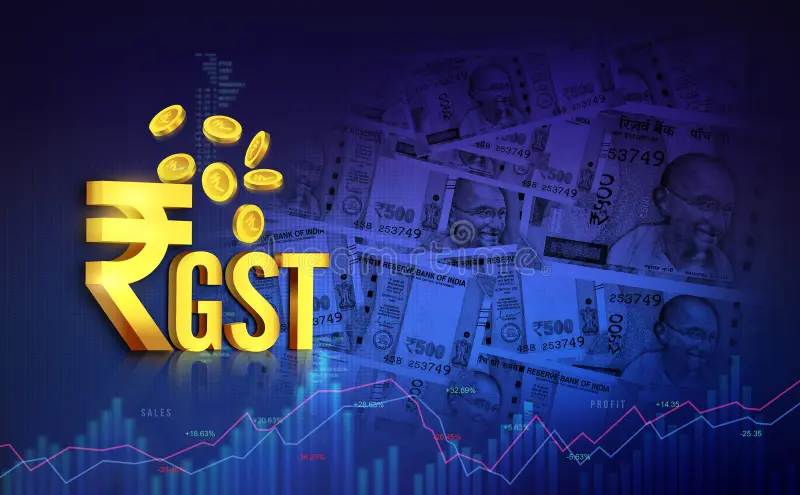June GST Collection Hits ₹1.85 Trillion
June GST Collection Hits ₹1.85 Trillion, making it one of the most talked-about financial updates of the month. For UPSC, SSC, Banking, and Railway exam aspirants, this isn’t just a number—it’s a key economic indicator that reflects government revenue, tax compliance, and the country’s financial health. Understanding this development helps candidates connect current events with static concepts from Indian Economy, Governance, and Public Finance.
🔑 Key Highlights of June 2025 GST Collection
Record Growth
The GST revenue for June 2025 was ₹1.85 trillion, a 6.2% increase compared to June 2024. This is a strong signal of sustained tax collection despite being a four-month low.Month-on-Month Dip
While the YoY growth is positive, GST collection in June dropped from ₹2.01 trillion in May 2025 and ₹2.37 trillion in April 2025, showing a short-term economic moderation.Component Breakdown
Central GST (CGST): ₹34,558 crore
State GST (SGST): ₹43,268 crore
Integrated GST (IGST): ₹93,280 crore
Cess: ₹13,491 crore
Net Collection After Refunds
After accounting for refunds, the net GST collection stood at ₹1.59 trillion, which is still a robust figure and reflects effective compliance and refund processing.
📈 What Does This Mean for India’s Economy?
Economic Resilience:
The consistent rise in collections year-over-year indicates resilience in India’s economic activities, especially in trade and services.Increased Compliance:
More taxpayers are coming under the GST net, and digital filing systems are maturing—highlighting India’s shift toward a more formal economy.Revenue Generation:
The high collection ensures more funds for public welfare schemes, infrastructure, and development. It also reduces the need for external borrowings.
📘 Relevance for Competitive Exams
UPSC GS Paper III & Essay:
Questions often link tax reforms with inclusive growth, fiscal management, and governance. Understanding GST trends helps you write data-driven answers.SSC CGL, CHSL, and MTS:
Static GK and current affairs often test awareness of fiscal policy tools like GST.Banking & Insurance Exams:
Questions in Banking Awareness sections frequently cover recent financial statistics and revenue trends.Railway & State PSC Exams:
Regional GST performance and national tax data are commonly included in General Awareness sections.
Five-Year Comparison:
GST revenue has nearly doubled in five years—from ₹11.37 trillion in FY21 to ₹22.08 trillion in FY25. This long-term increase is a positive sign for India’s macroeconomic stability.Regional Variations:
Smaller states like Nagaland, Sikkim, Tripura, and Ladakh showed the highest year-over-year growth, indicating improving compliance across all regions.Digital Infrastructure’s Role:
Automation, e-invoicing, and the GSTN network have minimized evasion and improved taxpayer tracking—key for future reforms.
✅ Key Points Summary
June GST Collection Hits ₹1.85 Trillion, 6.2% higher YoY
Net collection after refunds: ₹1.59 trillion
Month-on-month dip from May and April
IGST continues to be the largest contributor
Supports stronger fiscal planning and policy-making
Very relevant for UPSC GS III, SSC GK, Banking Awareness, and more
Reflects compliance, transparency, and policy success
🧠 20+ MCQs Based on ‘June GST Collection Hits ₹1.85 Trillion’
What was India’s gross GST collection in June 2025?
A) ₹1.74 Trillion B) ₹1.85 Trillion C) ₹2.01 Trillion D) ₹2.37 Trillion
✅ Answer: B
👉 This represents a 6.2% YoY increase.June GST 2025 YoY growth rate was approximately:
A) 4.6% B) 6.2% C) 7.7% D) 8.4%
✅ Answer: BIn June 2024, gross GST was approximately:
A) ₹1.61 Trillion B) ₹1.74 Trillion C) ₹1.85 Trillion D) ₹1.96 Trillion
✅ Answer: BWhich month had the highest GST collection in 2025?
A) March B) April C) May D) June
✅ Answer: BGST collection for May 2025 was around:
A) ₹1.84 Trillion B) ₹1.85 Trillion C) ₹2.01 Trillion D) ₹2.37 Trillion
✅ Answer: CCGST amount in June 2025 was approximately:
A) ₹34,558 Crore B) ₹45,690 Crore C) ₹93,280 Crore D) ₹13,491 Crore
✅ Answer: AJune’s IGST figure was:
A) ₹34,558 Cr B) ₹43,268 Cr C) ₹93,280 Cr D) ₹13,491 Cr
✅ Answer: CGST refunds in June rose by about:
A) 15% B) 20% C) 28.4% D) 34%
✅ Answer: CNet GST in June 2025 after refunds:
A) ₹1.59 Trillion B) ₹1.74 Trillion C) ₹1.85 Trillion D) ₹2.01 Trillion
✅ Answer: AFY25 gross GST touched:
A) ₹20 Trillion B) ₹22.08 Trillion C) ₹18 Trillion D) ₹24 Trillion
✅ Answer: BGST collections doubled since FY21 to FY25 in about:
A) 3 years B) 4 years C) 5 years D) 6 years
✅ Answer: CWhich state is NOT among listed high-growth pockets?
A) Nagaland B) Sikkim C) Uttar Pradesh D) Tripura
✅ Answer: CThe lowest percentage growth rate since last September was:
A) April B) May C) June D) July
✅ Answer: CAccording to analysts, May’s GST growth was due to:
A) Domestic demand only B) Import surge C) Agriculture output D) Services tax
✅ Answer: BGST average monthly collection in FY25 was:
A) ₹1.51 Trillion B) ₹1.55 Trillion C) ₹1.84 Trillion D) ₹2.01 Trillion
✅ Answer: CWhich constitutional amendment brought GST?
A) 100th B) 101st C) 102nd D) 103rd
✅ Answer: BGST implementation began on:
A) 1 July 2016 B) 1 July 2017 C) 1 April 2017 D) 1 Jan 2018
✅ Answer: BWhich body oversees GST administration?
A) RBI B) SEBI C) CBIC D) NITI Aayog
✅ Answer: CGST is a:
A) Direct tax B) Destination-based indirect tax C) Income tax D) Wealth tax
✅ Answer: BEstimate of GST as a % of GDP in FY24 was ~:
A) 2.6% B) 3.0% C) 3.3% D) 4.0%
✅ Answer: CWhich slab system does NOT apply under GST?
A) 0% B) 5% C) 18% D) 35%
✅ Answer: D
🌟 Positive Outlook
India’s June GST Collection Hits ₹1.85 Trillion, showcasing a remarkable balance between economic growth and tax policy efficiency. It affirms that the Indian economy is on a positive fiscal trajectory, backed by a transparent taxation system.
Want to understand the latest economic developments without jargon?
👉 Subscribe to Vidya Vedas Weekly Insights for exam-ready blogs, current affairs analysis, and easy-to-digest updates.


Wow! This blog looks exactly like my old one! It’s on a entirely different subject but it has pretty much the same page layout and design. Wonderful choice of colors!